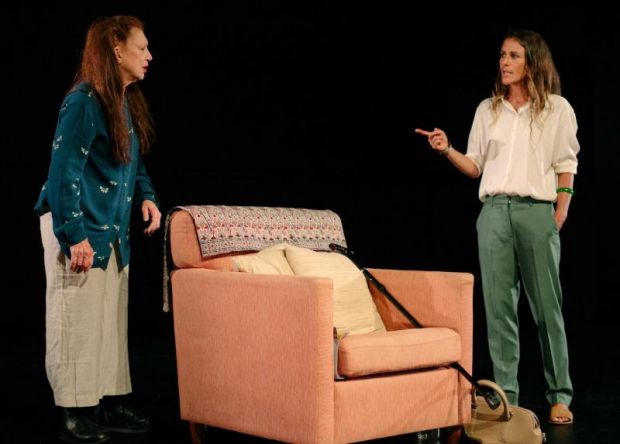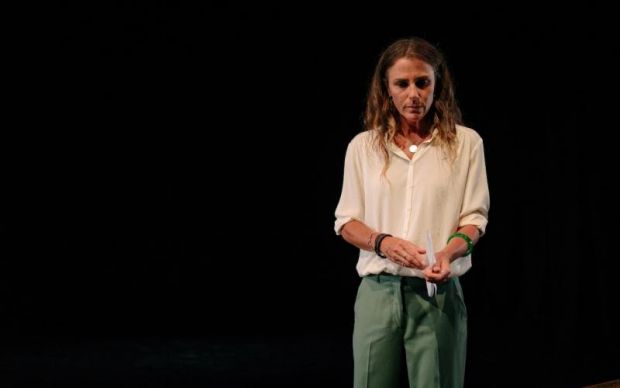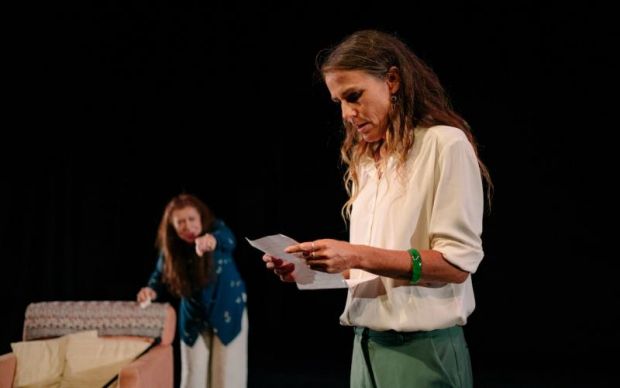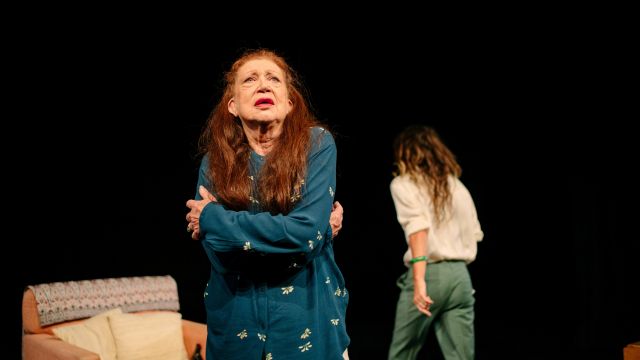Betty
Is it a coincidence or the zeitgeist that we have all at once a series of distinguished and anguished, complex works - about mothers and daughters? There was the recent And She Would Stand Like This from the Antipodes Theatre Company; there is Grace at Red Stitch Actors’ Theatre; and there is the movie adaptation of Elena Ferrante’s The Lost Daughter. And here we have Betty – like Grace and The Lost Daughter – a story that depends on a series of reveals about the past that make sense about the present and mines the concepts of blame and forgiveness.

Betty is a two-hander that begins like the sit-com bickering of a fractious Mother (Sally Mckenzie) and her staying-in-control Daughter (Jules Allen) in an interim aged care facility. Although, these days, there’s not much that’s funny about aged care facilities, Jules Allen’s text finds plenty of humour in the conflict between the two. But it’s quickly established that there is a gulf between them, that Daughter has returned from overseas and is being ‘dutiful’, and that her Mother is an irascible, ‘naughty’ old girl resisting her fate like mad. It becomes less amusing as we realise that Mother is being overtaken by dementia, that she has delusions and hallucinations – and that Daughter‘s practical realism is cold, and that she nurses some deep and long held resentment. There are intriguing references to the family having been many years in Thailand that make us wonder about colonialism, identity, and deracination… (I was reminded of Marguerite Duras’ The Lover.)

One cannot say more without spoilers. Suffice to say that what is revealed is a past of crimes, of punishment, of undeserved and never resolved guilt, and the acceptance of horrors for the sake of holding on to ‘family’ because ‘family’ has shattered and yet it’s all one has. It is wrenching to see the Mother browbeat and insult her Daughter and the next second show us how much she needs Daughter’s love.
Things play out on the large bare space at Theatre Works – with its terrible acoustics – with nothing on stage but an armchair and a chest – a carved chest that contains reminders of the past. Emma Lockhart-Wilson’s lighting changes subtly alter mood and time, transporting us deeper into the characters’ inner being. Iain Sinclair’s direction shapes the performances and, as usual, he brings a revealing physicality the text.

As to those performances, Sally Mckenzie and Jules Allen have, on the face of it, rather different acting styles, but we must remember that Daughter is the rational one, there to solve neatly the problem of her mother’s future and is only, finally, provoked into her reveal of confrontation and accusation. Sally Mckenzie throws herself into her role, so much so that we might wonder at first where she can go next – but she goes to many places next. There is the deepest pathos of facing and describing the Mother’s past – something we realise she has not dared to do before – and there is terror at the spirit presence of her sister Betty. Mother is crazy, but we feel deeply for her as we come to understand why she is crazy. It is an astonishing performance.

Betty is a harrowing experience and yet, by confronting the characters’ pasts, its resolution feels earned. It is not a ‘happy ending’; it is an acceptance of the past, seen at last, as if the fog of guilt and anger has briefly cleared.
Michael Brindley
Photographer: Cameron Grant (Parenthesy)
Subscribe to our E-Newsletter, buy our latest print edition or find a Performing Arts book at Book Nook.

